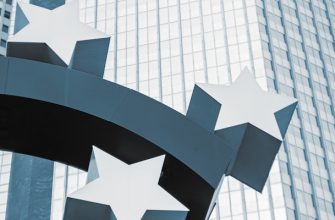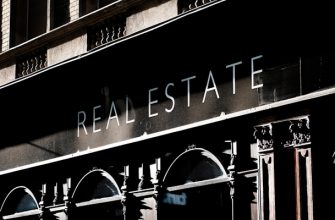- Understanding RWA Compliance in Tokenized Real Estate
- Key Regulations Impacting Tokenized Real Estate Projects
- Best Practices for Ensuring Compliance in RWA Tokenization
- The Role of Smart Contracts in RWA Compliance
- Strategies for Managing Risks in Tokenized Real Estate
- Case Studies: Successful RWA Compliance in Tokenized Projects
Understanding RWA Compliance in Tokenized Real Estate
Real World Assets (RWA) compliance is a critical aspect of tokenized real estate projects. Understanding RWA compliance involves recognizing the regulatory landscape that governs the tokenization of physical properties. Compliance ensures that tokenized real estate adheres to legal frameworks, providing security and transparency to investors. Adhering to RWA compliance helps mitigate legal risks and fosters investor confidence in tokenized assets.
Key elements of RWA compliance in tokenized real estate include:
- Regulatory Framework: Tokenized real estate must comply with local, national, and international regulations. This includes securities laws, anti-money laundering (AML) provisions, and know-your-customer (KYC) requirements.
- Property Valuation: Accurate valuation of the underlying real estate asset is essential. Tokenized real estate projects should engage certified appraisers to establish fair market value.
- Legal Structure: Establishing a solid legal structure is vital for compliance. This may involve creating special purpose vehicles (SPVs) or trusts to hold the real estate assets being tokenized.
- Investor Rights: Clearly defined rights and responsibilities for token holders must be articulated. This includes understanding dividend distributions, voting rights, and liquidity options.
- Transparency and Reporting: Ongoing reporting and transparency are crucial for maintaining compliance. Regular updates on property performance and financial health of the tokenized asset should be provided to investors.
Incorporating these best practices into tokenized real estate projects will not only ensure RWA compliance but also enhance the overall appeal of the investment opportunity. By prioritizing compliance, tokenized real estate can effectively bridge the gap between traditional assets and innovative blockchain technology, paving the way for a more secure and accessible investment landscape.
Key Regulations Impacting Tokenized Real Estate Projects
In the realm of tokenized real estate projects, navigating compliance is crucial to ensure the successful implementation and operation of these innovative initiatives. Various key regulations impact tokenized real estate ventures, shaping how these projects are structured, marketed, and managed. Understanding these regulations is essential for stakeholders seeking to engage in tokenized real estate.
- Securities Regulations: Tokenized real estate assets often fall under securities laws. Compliance with regulations such as the Securities Act can determine how tokens are classified and sold, requiring careful consideration in project design.
- Anti-Money Laundering (AML) and Know Your Customer (KYC): Projects must adhere to AML and KYC regulations to prevent illicit activities. Implementing robust identity verification processes is critical for maintaining compliance and building trust with investors.
- Tax Compliance: Tokenized real estate projects must navigate various tax obligations, including capital gains taxes and income taxes related to token transactions. Engaging tax professionals can help ensure adherence to applicable laws.
- Real Estate Laws: Local real estate regulations must be observed when tokenizing properties. This includes zoning laws, property rights, and landlord-tenant laws, which can vary significantly across jurisdictions.
- Data Protection Regulations: Compliance with data protection laws, such as the General Data Protection Regulation (GDPR), is necessary to safeguard personal information collected during the tokenization process.
Each of these regulations plays a pivotal role in the success of tokenized real estate projects. By understanding and addressing these key regulations, stakeholders can navigate the complex landscape of compliance, ultimately fostering a more secure and credible environment for investment in tokenized real estate.
Best Practices for Ensuring Compliance in RWA Tokenization
Ensuring compliance in Real World Asset (RWA) tokenization is crucial for successful real estate projects. The landscape of tokenized assets is constantly evolving, and adhering to regulatory frameworks is fundamental to safeguard investments and maintain market integrity.
- Understand Regulatory Frameworks: Familiarity with local and international laws governing tokenized real estate is essential. This includes securities regulations, anti-money laundering (AML), and know-your-customer (KYC) requirements that apply to RWA tokenization.
- Engage Legal Experts: Consulting with legal professionals who specialize in blockchain and real estate can provide valuable insights into compliance obligations. Their expertise can help navigate complex legal environments associated with tokenized assets.
- Implement Robust KYC Procedures: To ensure compliance, it is vital to establish thorough KYC processes that verify the identities of all participants in the tokenization of real estate. This minimizes risk and enhances trust among stakeholders.
- Regular Audits and Reporting: Conducting regular audits of tokenized real estate projects can help identify compliance gaps. Transparent reporting mechanisms should be established to keep stakeholders informed about financial and operational status.
- Utilize Smart Contracts: Smart contracts can automate compliance checks and facilitate transactions within the tokenized real estate ecosystem. This technology ensures that all transactions adhere to predefined regulatory standards.
- Stay Updated on Regulatory Changes: The regulatory environment for RWA tokenization can change rapidly. Continuous monitoring of legal updates and industry standards is necessary to adapt strategies accordingly.
By implementing these best practices in RWA tokenization, stakeholders can significantly enhance compliance, mitigate risks, and promote a transparent investment environment in tokenized real estate projects. This proactive approach fosters confidence among investors and contributes to the overall growth of the tokenization market.
The Role of Smart Contracts in RWA Compliance
Smart contracts play a pivotal role in ensuring compliance with Real World Asset (RWA) regulations within tokenized real estate projects. By automating processes, smart contracts help streamline compliance with legal requirements, thereby reducing the risk of human error and enhancing transparency.
One of the key advantages of utilizing smart contracts in the RWA space is their ability to enforce compliance automatically. For instance, these contracts can be programmed to execute transactions only if certain conditions are met, ensuring that all parties adhere to the stipulated regulations. This mechanism not only promotes trust among stakeholders but also minimizes the potential for disputes.
- Transparency: Smart contracts provide an immutable record of all transactions, making it easy for regulators to audit and verify compliance.
- Efficiency: By automating compliance processes, smart contracts reduce the time and resources required for manual oversight.
- Security: The decentralized nature of blockchain technology ensures that smart contracts are less susceptible to tampering and fraud.
- Adaptability: Smart contracts can be updated to reflect changes in regulations, ensuring ongoing compliance without the need for extensive modifications.
Furthermore, integrating smart contracts into tokenized real estate projects facilitates real-time monitoring of compliance metrics. This ongoing oversight can alert project managers to potential issues before they escalate, allowing for timely corrective actions. Consequently, the use of smart contracts not only simplifies the compliance process but also builds a foundation of reliability and accountability in RWA management.
In conclusion, the role of smart contracts in RWA compliance is crucial for the success of tokenized real estate initiatives. By leveraging this innovative technology, projects can enhance their regulatory adherence, streamline operations, and foster trust among investors and stakeholders alike.
Strategies for Managing Risks in Tokenized Real Estate
Effective risk management is crucial for the success of tokenized real estate projects. By adopting strategic approaches, stakeholders can mitigate potential risks associated with tokenization, ensuring compliance with regulations and enhancing investor confidence.
- Conduct Comprehensive Due Diligence: Thoroughly assess the underlying assets before tokenization. This includes evaluating property titles, financial performance, and legal compliance. Proper due diligence helps identify risks and ensures a solid foundation for the tokenized real estate.
- Implement Robust Legal Frameworks: Establish clear legal agreements that outline the rights and obligations of token holders. This includes creating terms of service, privacy policies, and compliance with local regulations. A strong legal framework provides clarity and reduces potential disputes.
- Leverage Technology for Transparency: Utilize blockchain technology to enhance transparency in tokenized real estate. Smart contracts can automate processes, ensuring that transactions are secure and traceable. This transparency reduces the risk of fraud and builds trust among investors.
- Diversify Investment Portfolios: Spread investments across multiple tokenized properties to minimize exposure to individual asset risks. Diversification can help balance the overall risk profile of the investment portfolio, protecting against market volatility.
- Establish Clear Exit Strategies: Define exit strategies for token holders, including options for liquidation or transfer of tokens. Clear exit mechanisms provide investors with a sense of security, knowing they have options to recoup their investments if needed.
- Monitor Regulatory Changes: Stay informed about evolving regulations in the tokenized real estate market. Regularly reviewing compliance requirements ensures that projects remain aligned with legal standards, reducing the risk of non-compliance penalties.
Implementing these strategies fosters a secure environment for tokenized real estate projects. By addressing potential risks proactively, stakeholders can navigate the complexities of compliance more effectively, leading to sustainable growth and investor satisfaction.
Case Studies: Successful RWA Compliance in Tokenized Projects
Real-world asset (RWA) compliance is a critical factor in the success of tokenized real estate projects. Analyzing case studies of successful RWA compliance can provide valuable insights and best practices for future initiatives. By examining these examples, stakeholders can better understand the strategies that lead to effective compliance and operational efficiency.
- Project A: Tokenized Luxury Apartments
- Implemented a robust legal framework to ensure adherence to local regulations.
- Engaged with regulatory bodies early in the development process to streamline compliance.
- Utilized smart contracts to automate compliance checks, reducing risks associated with manual oversight.
- Project B: Commercial Real Estate Tokens
- Incorporated a comprehensive due diligence process, focusing on asset verification.
- Established partnerships with legal experts to navigate complex regulatory landscapes.
- Developed an ongoing compliance monitoring system to adapt to regulatory changes swiftly.
- Project C: Affordable Housing Tokenization
- Focused on community engagement to ensure transparency and build trust with stakeholders.
- Adopted international best practices in RWA compliance to enhance credibility.
- Leveraged blockchain technology for secure and transparent transactions, reinforcing compliance measures.
These case studies highlight the importance of proactive measures in RWA compliance for tokenized real estate projects. By learning from these initiatives, future projects can minimize risks, enhance regulatory adherence, and ultimately drive success in the evolving landscape of tokenized assets.









